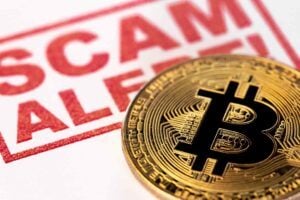Grayscale is once again rattling the fence of the US Securities and Exchange Commission (SEC). According to various media reports, the world’s largest crypto fund manager has submitted three new applications to the SEC eGrayscale beantragt neue Krypto-ETFs bei der SECing – hoping to extend the ETF revolution to other coins. The focus: Bitcoin Cash (BCH), Hedera (HBAR), and Litecoin (LTC).
Bitvavo, one of the leading exchanges from Europe (Netherlands) with a large selection of cryptocurrencies. PayPal deposit possible. For a limited time only: 10 Euro bonus when you sign up via CoinPro.ch
The strategy is not new, but all the more ambitious. Grayscale wants to make its previously closed-end funds fit for free trading on the major exchanges. Specifically, this means that the internal vehicles should become tradable ETFs listed on the Nasdaq or NYSE Arca. This is already a reality for Bitcoin and Ether – now the next candidates are to follow.
Grayscale Applies for New Crypto ETFs with the SEC
To this end, Grayscale submitted two different application models: the classic S-1 forms for Bitcoin Cash and Hedera, which involve extensive review for new products. For Litecoin, on the other hand, the faster S-3 procedure, which promises accelerated processes. The documents also suggest that a so-called 19b-4 procedure was prepared in parallel. This concerns the question of whether the fund units meet the admission criteria for stock exchange listing. The application literally states: «This document was created under the assumption that the SEC approves the 19b-4 forms, which allow a listing on the NYSE Arca.»
The new papers are making the SEC’s agenda increasingly tight. More than 30 applications for spot crypto ETFs are already piling up in Washington. Many observers expect a wave of decisions in the fall that could set the market in motion. One thing is certain: the authority is facing a hot end to the year.
Related topic: SEC Chief Atkins heralds «new crypto chapter» in the USA
So far, the SEC has been extremely cautious. Only Bitcoin and Ether products have made the leap. All other cryptocurrencies were excluded. Although a Solana ETF from Osprey was approved last year, it falls under the Investment Company Act of 1940 and is strictly regulated. Demand is correspondingly manageable, which is why it cannot be compared with the «classic» spot ETFs.
ETF Applications for Bitcoin Cash (BCH), Hedera (HBAR) and Litecoin (LTC)
This is exactly where Grayscale comes in. The company wants to build up pressure with its move – and at the same time prove that other coins are also suitable for regulated investment products. Particularly exciting: Litecoin is one of the oldest cryptocurrencies, but has been leading a niche existence for years. An official ETF could bring new attention to the «silver coin» among the coins. Hedera, in turn, is considered a technical outsider with its own governance structure, while Bitcoin Cash positions itself as a faster alternative to Bitcoin.
Whether the SEC approves the applications is open. The authority is moving between the political pressure to protect investors and the dynamics of a market that has long since reached global dimensions. Grayscale itself remains optimistic. The company had already fought tenaciously for the Bitcoin ETFs and prevailed against the SEC – successfully in the end.
Interesting: Crypto regulation in the USA: This is the seven-point plan
For investors, approval could have far-reaching consequences: more liquidity, greater acceptance and new ways to incorporate crypto investments into regulated portfolios. For the SEC, it would be a signal that it is slowly moving away from its restrictive course. Until then, however, the ball remains in the field of the supervisors. One thing is clear: Grayscale has rekindled the debate with its latest applications. Whether 2025 will be the year in which not only Bitcoin and Ether, but also BCH, HBAR and LTC find their way to Wall Street will be decided in the coming months – between stacks of files, lobbying pressure and the growing hunger of the markets for new products. (mck)




